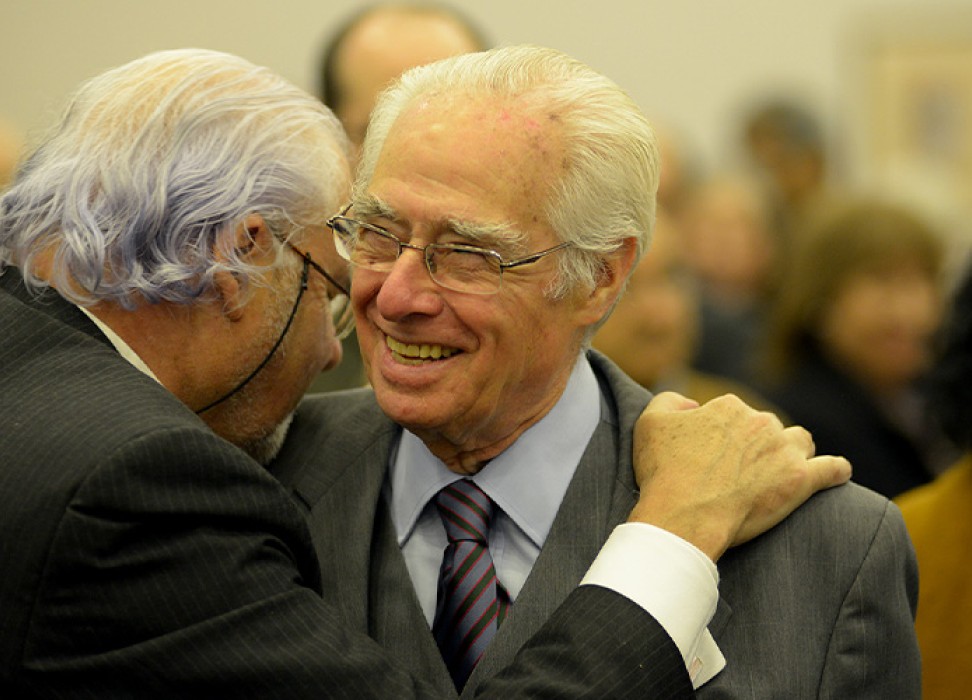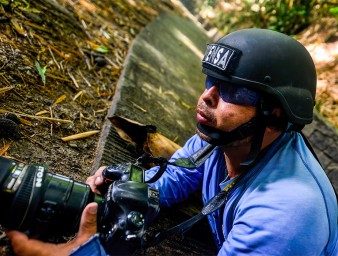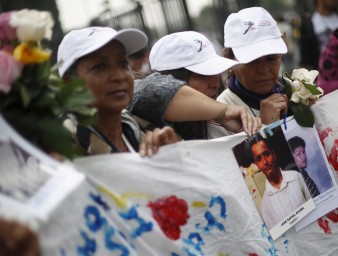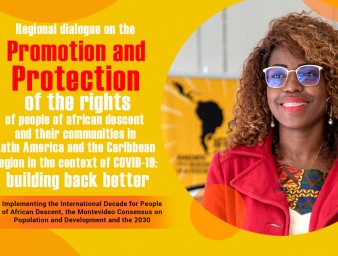Roberto Garretón Merino: A life in service of human rights
25 January 2022

There is no greater commitment to our homelands than working to ensure that each of our fellow countrymen and women enjoys the freedoms and rights recognised in the Universal Declaration, just as there is nothing more unpatriotic than to humiliate one's own people.
ROBERTO GARRETÓN, 2008
“The anger it caused me was such that (...) I started to get involved in the issue of human rights.” This is how Roberto Garretón Merino explained the turn his life took on 12 September 1973, when one day after the coup d'état in Chile he decided to leave his job as a corporate lawyer to embark on a path that transformed him into a renowned defender of human rights in Chile and the world.
“It was the most decisive day of my life,” said Garretón in atelevised interview with the Museo de la Memoria in 2018. Shortly after the dictatorship began, he joined the recently created Pro-Peace Committee (Comité Pro Paz) to defend the persecuted before the military courts set up by the regime. “I attended 103 court-martials, but what did I know? I was a lawyer who worked for the Santiago drinking water company; we had only worked on labour disputes cases.”
Roberto Garretón's path and his tireless struggle in defence of human rights came to an end on 27 December 2021 at the age of 80. This generous, deeply humane and supportive man, as described by his friends, passed away that day, leaving an indelible mark of dignity and honour that has extended beyond Chile.
“All those who had the chance to work with Roberto Garretón remember his inspiring communicative energy, his way of listening to the humble, the poor, the simple, and the ignored, his generosity and his absolute rejection of compromising on fundamental rights and values,” said the UN Human Rights Chief, Michelle Bachelet. “Roberto Garretón was the embodiment of strength, determination, empathy and humility.”
Garretón's personal hallmark was the simple and direct way in which he put forward his ideas. “Every human rights violation has three components: a brutal act, cowardice and a lie. There is no human rights violation without these three conditions,” the lawyer said in an interview with CNN Chile in 2013.
“Right up to his passing, Garretón kept speaking out against human rights violations, whoever the perpetrators were,” Bachelet added. “For him, human rights represented a universal project, and he persistently advocated for all public policy to be guided by it. That legacy is an inspiration for us and for human rights defenders everywhere.”
The Museum of Memory and Human Rights in Santiago was the place chosen by his loved ones and Chilean society to pay their last farewell to him. The choice was fitting, as Garretón was both an example of memory and of tireless work in defence of human rights.
His career
After the coup d'état in Chile, Garretón joined the Committee for Cooperation for Peace in Chile (1973-1975) - known as the Pro Peace Committee - the first institution to provide support to people seeking comfort and protection from the dramatic and often violent circumstances affecting them.
After the dissolution of the Committee by the dictatorship, he joined various efforts to assist the persecuted and headed the judicial area of the Vicaría de la Solidaridad, a symbolic entity associated with the Catholic Church that provided support to individuals and families of victims of human rights violations during much of the regime. He carried out this function despite threats against him and his family, including his arrest in 1987.
“The worst that can happen to a country is for it to have no memory,” Garretón said, referring to the enormous work of the Vicaría de la Solidaridad, which documented accounts of human rights violations during the dictatorship. The more than 85,000 documents that make up this archive, including copies of court files, appeals for legal protection, international complaints, accounts of torture and forced disappearances, among others, were declared part of the Memory of Humanity by UNESCO.
Garretón also served as a UN delegate, expert and official in various positions. In 1993, he was the Vice President of the Commission of Human Rights and Vice President of the World Conference on Human Rights held in Vienna. He also held the positions of Special Rapporteur on the Human Rights Situation in the Democratic Republic of Congo and member of the Working Group on Arbitrary Detention. From 2001 to 2005, he acted as Regional Representative for Latin America and the Caribbean of the High Commissioner for Human Rights and in 2006, he was appointed as one of seven experts providing support to the UN Secretary General Special Adviser on the Prevention of Genocide, contributing to the broader efforts of the UN to prevent crimes against humanity.
Convinced that a just and democratic society cannot be built on a foundation of lies or guilty silence, Garretón dedicated his life to the fight against impunity. With this belief in mind, he became an ally of the abused and worked tirelessly in the name of memory, justice, reparation and non-repetition.
Awards
Throughout his career, Garretón received various prestigious awards. In 2003, he was given the Légion d'honneur (Legion of Honour) by the French Government. In 2020, he received the National Human Rights Award for his work on behalf of victims of human rights violations from the National Human Rights Institute of Chile – where he served in the Board of Directors for six years (2010-2016).
25 January 2022



